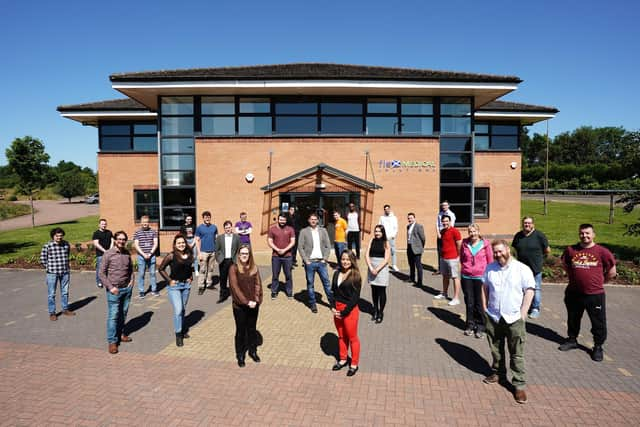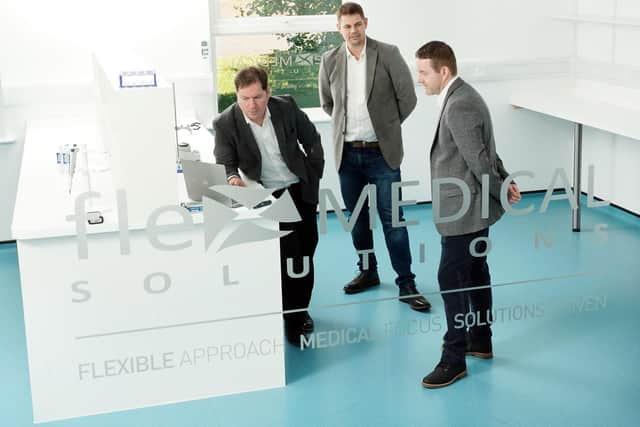Life sciences firm FlexMedical Solutions flags strong prognosis after £1m investment
The Livingston-headquartered life sciences company offers design, development and manufacturing services to customers in human point-of-care testing – with its remit including Covid testing.
It doubled revenue to £3m in the year to April 30, says this should be in the region of £4.5m in the current year, and its workforce now exceeds 30.
Advertisement
Hide AdAdvertisement
Hide AdFlexMedical’s customers range from start-ups and spin-outs to established global corporates, and it supports them in the development of tests for the management and diagnosis of multiple diseases and medical conditions – including respiratory disease, sepsis, kidney disease, heart disease, diabetes, and antimicrobial resistance.


Currently, around 70 per cent of FlexMedical’s revenue comes from outside the UK – and it plans to increasingly target the North American market in 2022.
It added that the global human point-of-care diagnostics market is estimated to grow to about $50 billion (£36bn) in the next four years, with Covid’s impact on healthcare increasing the trend of managing patients at home or in non-hospital care settings.
Chief executive and co-founder Kevin Fallon said: “Human diagnostics is very much in the headlines due to the pandemic, with governments and investors alike having their eyes opened to the the power of diagnostics, particularly around point of care, and we’ve seen that impact positively on the business. If you look at the UK alone, healthcare economics now demand that more people are managed at home to lower the chance of the NHS being overburdened.


“Other than an initial lockdown wobble, we have been very fortunate to see continuing sustained growth since the pandemic started. While the manufacture and development of Covid tests is a relatively small part of the business, and in fact we were growing as rapidly pre-pandemic, what we think is more important is that we are definitely seeing an indirect upside in terms of increased investor activity and a greater appetite and take-up of point-of-care technology in general.”
Complexities
The firm also said it has five new labs for research and development, and new office facilities. While Mr Fallon explained that supply chains were definitely affected by the pandemic, with “some price increases but more notably increased lead times”, Brexit has added “complexities” when it comes to taxes, duties, shipping, and hiring.
Additionally, while human diagnostics is FlexMedical’s primary market, it recently completed the development of a test for use in the food and drink sector, and is also eyeing other fast-growth areas including agri-food and wearable technology.
Mr Fallon added that FlexMedical will remain self-funded in the immediate term, although he is not ruling out external investment or acquisitions after that. “Our focus for the next 12 months centres on the significant growth opportunities we have in international markets. At the same time, if we spot value-adding growth by way of acquisition, then that’s certainly something we’re going to look at.”
Advertisement
Hide AdAdvertisement
Hide AdThe life sciences firm was founded in 2015 by Mr Fallon and chief technology officer Murray Whyte, with chief scientific officer Donogh FitzGerald joining the company in 2019. All three previously worked in the leadership team of Alere, which was acquired by US-based diagniostic giant Abbot in 2016.
A message from the Editor:
Thank you for reading this article. We're more reliant on your support than ever as the shift in consumer habits brought about by coronavirus impacts our advertisers.
If you haven't already, please consider supporting our trusted, fact-checked journalism by taking out a digital subscription.
Comments
Want to join the conversation? Please or to comment on this article.
